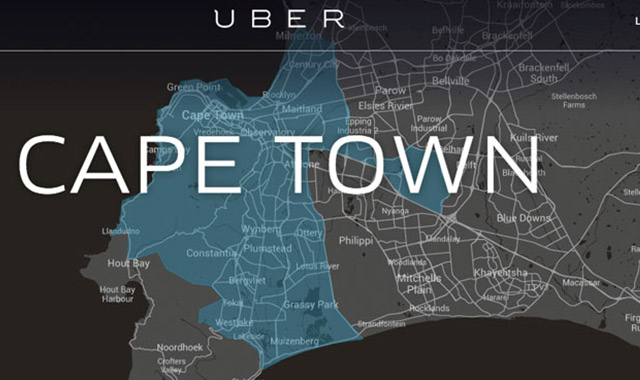
Licensed taxi operators are constrained by legislation that inadvertently gives online operator Uber an unfair advantage in public transport, the Western Cape Metered Taxi Council (WCMTC) has said.
“The Western Cape Metered Taxi Council does not own any permits; it is the coordinating body for the industry. However, its members are subject to … stringent conditions imposed on their permits that include fixed tariffs as set by the provincial regulatory entity,” WCMTC chair Aldino Muller said.
The taxi industry around the world has been disrupted by Uber, which allows passengers to hail rides from drivers that have contracted with the company.
However, the US-based company has been subjected to criticism in a number of countries such as France, India and South Africa because of accusations of riding roughshod over legislation.
In Cape Town, about 200 Uber cars were impounded by city officials while negotiations on the status of the company continue.
“Uber’s e-hailing service ‘does not fall into any of the categories of the National Land Transport Act’, as an official explained to me this week. It is also not provided for in the integrated transport plan. And any process to regularise the e-hailing service must follow the requirements of the Promotion of Administrative Justice Act,” wrote Western Cape premier Helen Zille in her Inside Government newsletter recently.
Uber, valued at over $40bn, has been bullish in promoting its business model.
“Uber is having a positive impact on Cape Town by creating more economic opportunity for drivers, providing more choice for consumers, reducing congestion and drinking and driving. Importantly, Uber brings huge benefits to the small operator looking to enter the market, empowering them through technology to grow a small business in a way that they couldn’t before,” the company said.
For the metered taxi industry, strict permit requirements prevent drivers and companies from reacting to the pace of technology to compete with Uber by building smartphone applications.
“We are subject to our permit conditions which dictate a sealed meter, permanent fixed roof and door signs, and fixed tariffs rates clearly marked on the vehicle,” said Muller.
“The industry has been asking since 1996/1997 through the National Taxi Task Team under the leadership of minister of transport Mac Maharaj for innovation through technology, so that the industry will have more accountability and improved customer services.”
He added that Uber is not hampered by such legal constraints and this has allowed the company to expand quickly.
“Our progress has been hampered while operating legally; Uber flouted all the laws deliberately thus giving this illegal operator an unfair advantage over the legal industry.”
Many services have been disrupted because of the Internet, and Uber has demonstrated that transport is a likely candidate for Web-driven upheaval.
Muller blamed government regulation for the slow adoption of online platforms in the taxi industry.
“We have been ready since 1997; however, it has been the regulatory framework that has prohibited progress.” — Fin24




